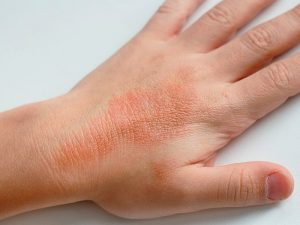What is Insomnia?
When you were little you may have been told to count sheep to get to sleep, but for people with insomnia it’s not that easy. Insomnia is a sleep disorder that is defined by the inability to fall asleep and stay asleep. People with this condition often wake up very early and are unable to fall back to sleep. The Centers for Disease Control and Prevention (CDC) classifies insomnia as a public health issue. Extreme lack of sleep has been linked to motor vehicle accidents, industrial disasters, medical errors and other occupational mistakes. A report by the National Department of Transportation, estimates that people who drove while feeling drowsy were responsible for 1550 fatalities and 40,000 injuries annually.
Insomnia can affect an individual’s day-to-day life and work performance.
There are three types of insomnia:
- Acute insomnia: This is a common form of the disorder that is usually brought on by stress, pressures at home, or traumatic events, but can occur because of a change in environment or routine. It can last for days or weeks.
- Chronic or secondary insomnia: This form is ongoing and can last for a month or longer. Chronic insomnia is usually a side effect or symptom of another issue or medical disorder.
- Primary insomnia: This is the least understood of insomnia conditions. Like acute insomnia, it is linked to life changes such as continuous stress or emotional trauma, but it is ongoing.
Effects of Insomnia
The most obvious effect is daytime drowsiness, but it can also cause:
- Depression
- Anxiety
- Irritability
What is Sleep Hygiene?
Sleep hygiene applies to all people, not just insomniacs. It is simply sleep routines and measures to promote better sleep practices and can aid in relieving some of the external aspects that contribute to insomnia. While your mental state can be the cause of restless nights, it never hurts to work on better sleep habits. Here are some tips from the National Center on Sleep Disorders Research:
- Go to bed and wake up at the same times every day, even at weekends.
- Don’t consume anything containing caffeine 6 six hours before bed.
- Avoid nicotine.
- Avoid alcohol.
- Avoid heavy meals; snacks are okay.
- Exercise in the late afternoon; avoid exercising 4 four hours before bedtime.
- Minimize noise, light (complete darkness is ideal) and keep your room cool during bedtime.
- Place the alarm clock away from the bed.
- Pre-bedtime rituals that promote sleep include reading, taking a bath, or listening to calming music.
Sleep hygiene applies to all people, not just insomniacs. It is simply sleep routines and measures to promote better sleep practices and can aid in relieving some of the external aspects that contribute to insomnia.
How to improve your sleep hygiene
While your mental state or media condition can be the root cause of your restless nights, it never hurts to work on better sleep habits. Here are some tips from the National Center on Sleep Disorders:
- Go to bed and wake up at the same times every day, even at weekends.
- Don’t consume anything containing caffeine 6 six hours before bed.
- Avoid nicotine.
- Avoid alcohol.
- Avoid heavy meals; snacks are okay.
- Exercise in the late afternoon; avoid exercising 4 four hours before bedtime.
- Minimize noise, light (complete darkness is ideal) and keep your room cool during bedtime.
- Place the alarm clock away from the bed.
- Pre-bedtime rituals that promote sleep include reading, taking a bath, or listening to calming music
Because anxiety, trauma and stress have been linked to insomnia, therapy to reduce these thoughts and feelings, or cognitive-behavioral therapy, can be used to improve sleep.
Yoga and Insomnia
Many studies suggest yoga can improve sleep. A National Health Interview Survey showed that 55 per cent of people who practiced yoga maintained better sleep, and 85 per cent said that it reduced stress. Marlynn Wei, MD, JD, writing for Harvard Health Publications, said that restorative yoga poses done right before bedtime can release tension and stress.











